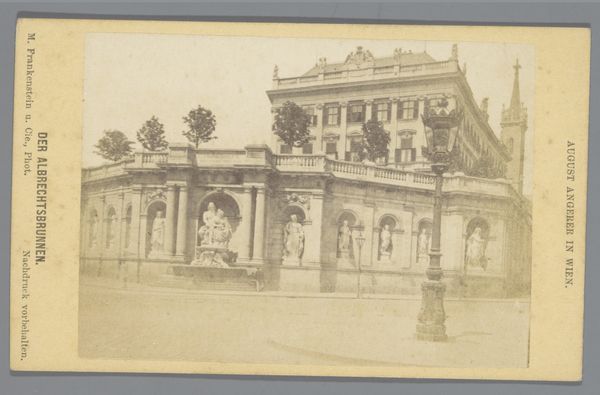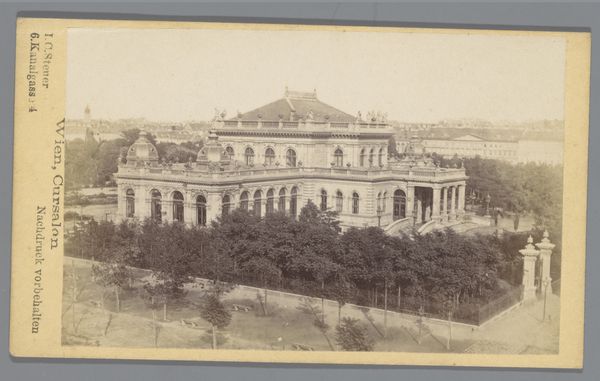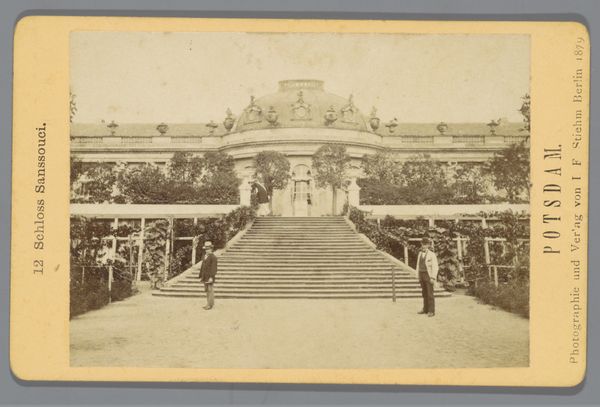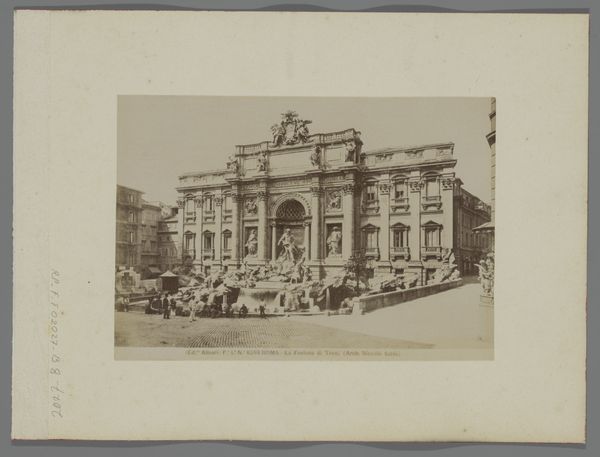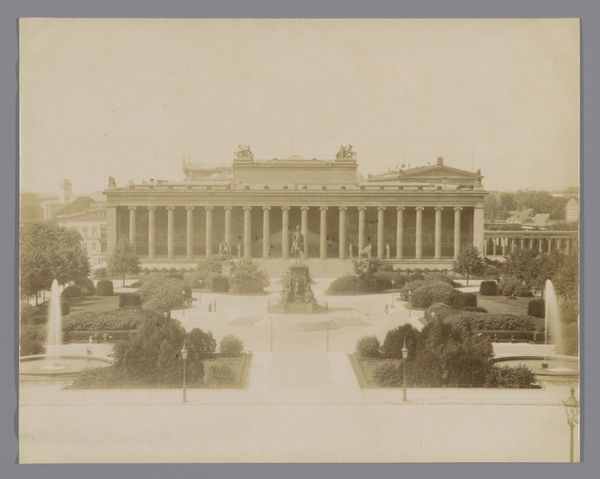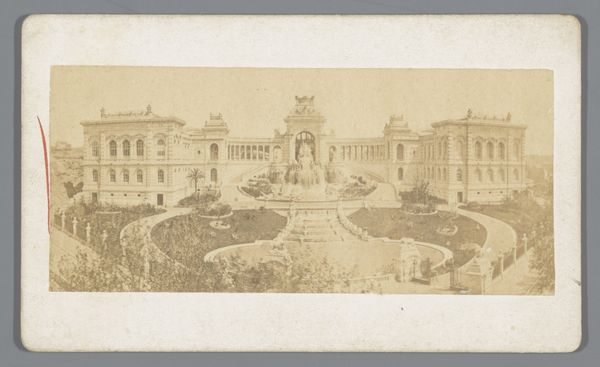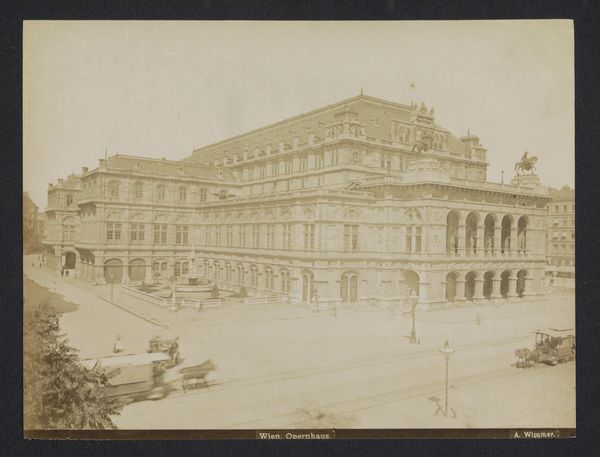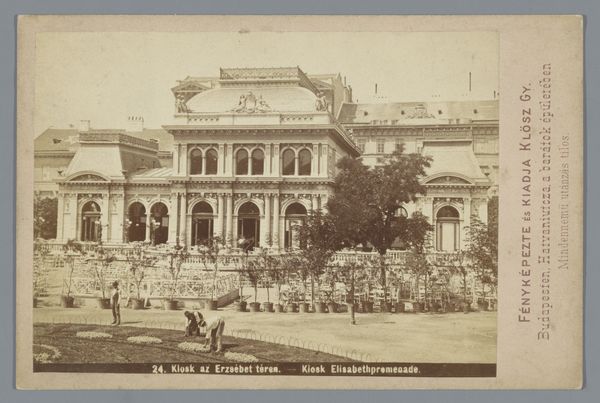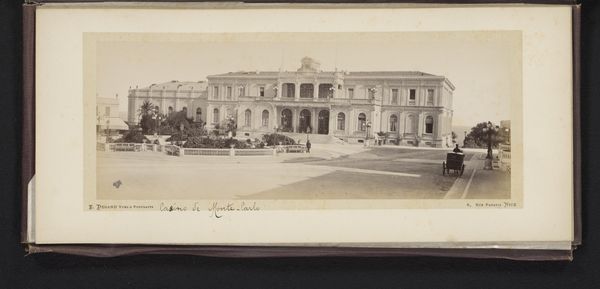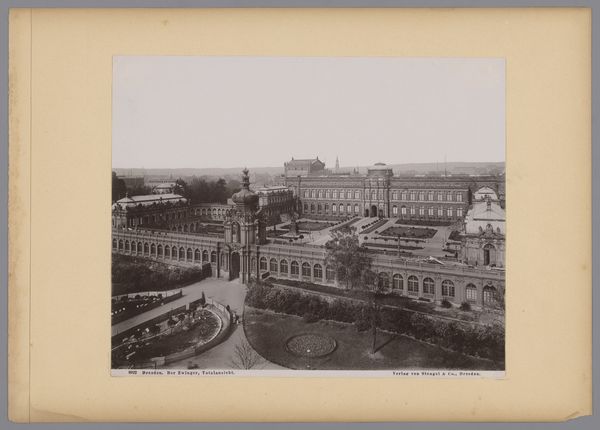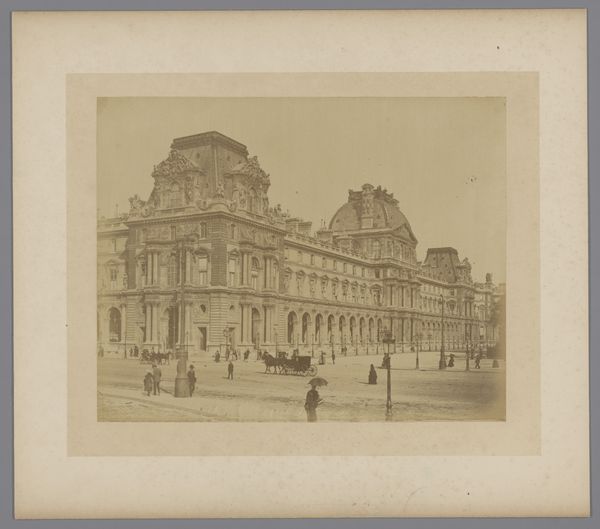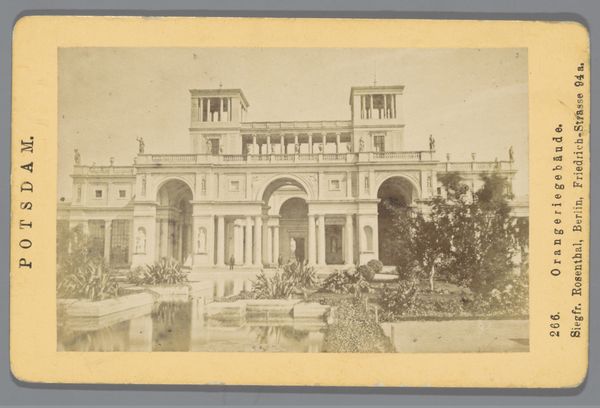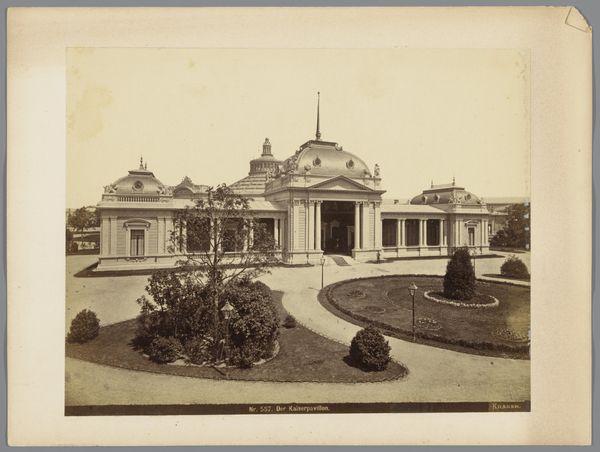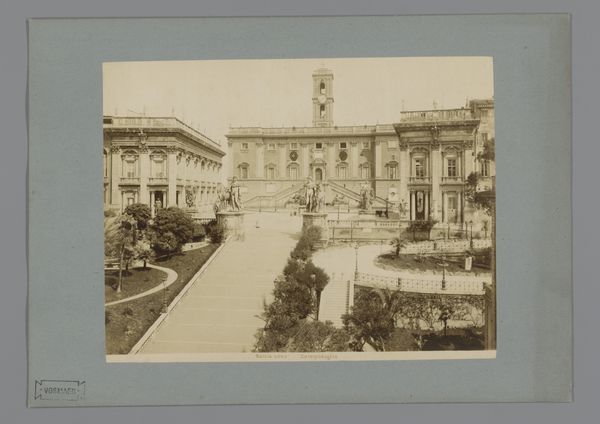
Dimensions: height 100 mm, width 140 mm
Copyright: Rijks Museum: Open Domain
Editor: This is "Gezicht op de Kursalon Hübner in Wenen," a photograph, dating from around 1875 to 1885, and the photo studio seems to be M. Frankenstein & Co. It's quite a grand cityscape, almost like a stage set. What draws your eye when you look at this image? Curator: For me, it’s about understanding what the Kursalon represented at this time. Beyond just being a place for entertainment, these salons became significant social spaces, particularly for the rising bourgeoisie. How does this image reflect or perhaps even challenge existing power structures through leisure and representation? Consider how access to spaces like this intersected with class and gender. Editor: So, the act of portraying it then becomes political in a way? Highlighting this new social sphere? Curator: Precisely! Photography democratized portraiture and architectural documentation, allowing broader audiences access to imagery previously reserved for the elite. Now, consider the architecture. Those classical elements—columns, arches— speak to a desire for legitimacy, aligning the bourgeoisie with established power structures while simultaneously carving out their own space. The “Kachdruck vorbehalten” reinforces concepts of copyright, artistic ownership and the art world power dynamic. Editor: It’s fascinating how much is communicated just through the image and text included in the image. I hadn’t considered how the act of documenting could also be a statement in itself. Curator: Absolutely. Think about who is included—or excluded— from this picture. Are we seeing the whole story, or is this a carefully curated representation intended to project a certain image? Understanding the nuances reveals the socio-political undercurrents present in even seemingly benign depictions of city life. Editor: Thank you. It gives me a lot to think about regarding the intent of photography itself, not only as capturing a moment in time, but a social narrative. Curator: My pleasure. Seeing the art within its complex cultural moment makes this so exciting.
Comments
No comments
Be the first to comment and join the conversation on the ultimate creative platform.
